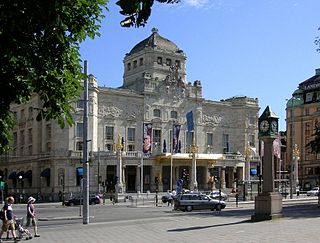
The Royal Dramatic Theatre is Sweden's national stage for "spoken drama", founded in 1788. Around one thousand shows are put on annually on the theatre's five running stages.

Elisabeth Olin née Lillström was a Swedish opera singer and a music composer. She performed the leading female role in the inauguration performance of the Royal Swedish Opera in 1773, and is referred to as the first Swedish opera prima donna. She was the first female to be made Hovsångerska (1773), and the first woman to become a member of the Royal Swedish Academy of Music (1782).

Marie Louise Marcadet née Baptiste was a Swedish opera singer and a dramatic stage actress of French origin. She was active in the Royal Swedish Opera as a singer, and in the Royal Dramatic Theatre and the French Theater of Gustav III as an actress. She was a member of the Royal Swedish Academy of Music from 1795.

Inga Åberg was a Swedish actress and opera singer. She was engaged as an opera singer at the Royal Swedish Opera, and as a stage actress at the Royal Dramatic Theatre, between 1787 and 1810.
Hedvig "Hedda" Katarina Hjortsberg also known as Hedda Koersner was a Swedish ballerina who starred for the Royal Swedish Ballet. She was the sister of the Swedish actor Lars Hjortsberg.
Gertrud Elisabeth Forsselius née Forsell, also called Forselia, later known as Elisabet Haeffner and Elisabet Fahlgren, was a Swedish stage actress and opera singer. She belonged to the pioneer generation of the Royal Dramatic Theatre.
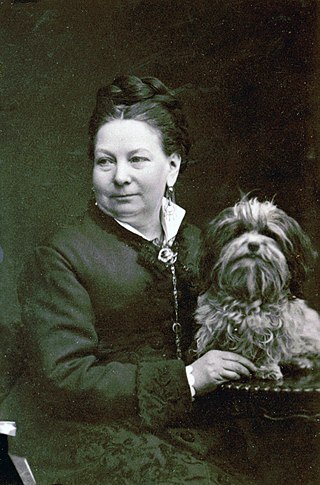
Antoinette Thérèse Elfforss was a Swedish stage actress and theatre director. She was the managing director of the travelling Elfforss Theater Company between 1869 and 1888.
The Stenborg theatre, also called Svenska Komiska Teatern, Komiska Teatern and Munkbroteatern, was a historical Swedish 18th century theatre, active between 1784 and 1799 in Gamla stan in Stockholm. It was the second theatre of Stockholm during the Gustavian age. In 1784-87, before the inauguration of the theatre of Ristell in Bollhuset, it was the only dramatic theatre of the native language in Stockholm.
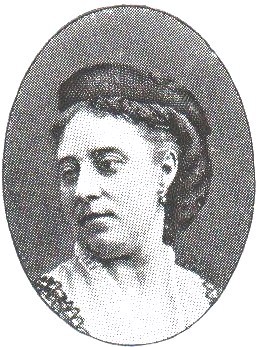
Hedvig Kristina Elisabeth "Betty" Deland was a Swedish stage actress. She was a principal of the Royal Dramatic Training Academy and belong to the elite of Swedish 19th-century actors. She was known as Betty Deland until 1857 and then as Betty Almlöf.
Marie Jeanette Wässelius was a Swedish opera singer. She is referred to as the leading prima donna of the Royal Swedish Opera in the early 19th-century. She was a Hovsångare (1815) as well as an associé of the Royal Swedish Academy of Music (1817). She is also known as Mamsell Wässelia or only Wässelia.

Zelma Carolina Esolinda Hedin née Bergnéhr was a Swedish stage actress. She was an elite actress of the Royal Dramatic Theatre, where she belonged to the star actors in the mid 19th-century. She was also known as Zelma Bergnéhr, Zelma Kinmansson and Zelma Bergmansson.

Edvard Maurits Swartz, was a Swedish stage actor. He was one of the star actors of the Royal Dramatic Theatre in the mid 19th century.

Carl Stenborg was a Swedish opera singer, composer and theatre director. He belonged to the pioneer generation of the Royal Swedish Opera and was regarded as one of the leading opera singers of the Gustavian era. He was a hovsångare and a member of the Royal Swedish Academy of Music.
Hedvig Christina Wigert née Falk was a Swedish opera singer. She belonged to the pioneer generation of performers of the Royal Swedish Opera.

Mindre teatern, Nya teatern, Lindeberska teatern, was a Swedish theatre at Kungsgatan in Stockholm, active 1842–1863. The building was used as localities for the Royal Dramatic Theatre in 1863–1908.
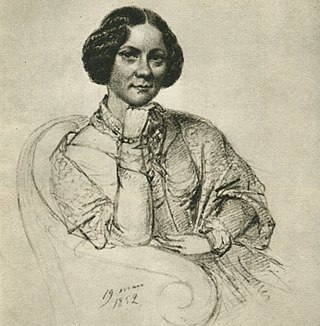
Louise Elisabeth Granberg, was a Swedish playwright, translator and theatre director.

Carlota Suzanne Osten was a Swedish film director, stage director, and screenwriter. She won the award for Best Director at the 22nd Guldbagge Awards for the film The Mozart Brothers.

Brita Clara Alice Augusta Florence von Horn was a Swedish novelist, dramatist, director and theatre leader. She worked in the theatre scene in Stockholm and published several books.

The French Theater of Gustav III was a French language theater active in Sweden between 1781 and 1792. The French theater company performed both before the Swedish royal court in the theaters of the royal palaces, as well as before the Swedish public in Stockholm. It is known to have played a significant part in the education of the pioneer generation of actors at the Royal Dramatic Theatre.
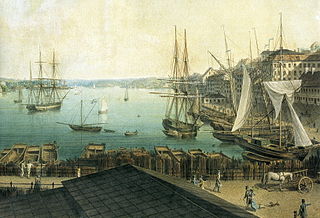
Events from the year 1842 in Sweden

















